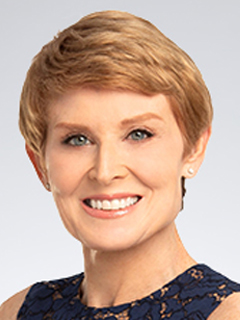Inflation still too hot
Food prices pick up, especially beef.

August 10, 2023
The Consumer Price Index (CPI) rose 0.2% in July, the same as June. That translates to a 3.2% gain from a year ago, 0.2% above the pace of June. The 3-month moving average, which is a better measure of momentum, fell to 1.9% in July from 2.7% in June.
Prices at the gas pump picked up for the second consecutive month after falling earlier in the year. The Saudis have been willing to give up market share to keep prices from plummeting, citing weakness in China; prices have moved up more sharply since July.
Prices for food at home picked up slightly, while prices at restaurants moderated slightly. Beef prices surged during the month and are expected to continue to rise in the months to come. Drought conditions in South America are pushing up beef prices. More food inflation is expected from this summer's blistering heat waves. Restaurants have continued to add fees on their bills to cover everything from health insurance to 401(k)s.
Consumers have been curbing their spending on food, trading down to store bands instead of name brands and fast food in place of full-service restaurants. Inflation-adjusted spending on food of all types has been trending down since August 2021 and in June dropped back to the 70-year trend. The pandemic-induced bubble in food spending is over. It is not hard to see where all those extra pandemic pounds went.
Core (excluding food and energy) CPI rose a more moderate 0.2%. That translates to a 4.7% increase from a year ago, 0.1% below the pace of June. The 3-month moving average slowed to a 3.1% pace in July, down from 4.1%. That is encouraging but still too hot for the Federal Reserve. It will keep the Fed on the sidelines during its meeting in September.
Big-ticket items from used vehicles to furniture, many of which require financing, continued their retreat. Used vehicle prices dropped at the fastest pace since February.
Shelter costs remained buoyant, rising 0.4% Domestic airfare continued to fall, as travel shifted abroad. Foreign airfares are considered an import. Airfares are a much smaller part of the CPI than insurance costs.
Rents are falling from a year ago; it takes time for those declines to show up in lease renewals. Owner's equivalent rents, which reflect the implied rent on homes, remain elevated. A rebound in home prices could stunt the progress in shelter costs. That would be unwelcome news to the Fed.
Hotel room and vacation rentals rates continued to drop. The exception seems to be hotel room rates in cities where Taylor Swift was playing. She and Beyoncé have single handedly breathed new life into live concerts. My daughter likened Swift to Beatlemania - she may be right.
The super core CPI, which strips out rents and has become a focus of the Fed, rose 0.2% after flatlining in June. That translates to a 4.1% increase from a year ago, up from 4.0% in July. The 3-month moving average warmed to a 1.7% pace from 1.4% in June.
The dirt is always in the details. Much of the weakness in core inflation is due to a sharp drop in health insurance costs. Those fell nearly 30% from a year ago due to a quirk in the way the CPI measures health insurance costs. That statistical anomaly will reverse in October.
The CPI calculates out of pocket expenses for consumers via health insurer profits, which fell when people could resume surgeries and medical visits postponed by lockdowns and fear of contagion. This is a category that was the primary driver of inflation in the 1980s and 1990s and will be watched carefully by the Fed.
Vehicle insurance costs continued to skyrocket. Everything from the size, electronic complexity and price of vehicles and parts is pushing up insurance costs. EVs are particularly heavy and costly to fix and often totaled after a crash. Those costs should come down over time but are currently adding to the upward pressure on vehicle insurance.
Domestic airfare continued to fall, as travel shifted abroad. Foreign airfares are considered an import. Airfares are a much smaller part of the CPI than insurance costs.
The Fed...is expected to pivot to holding rates high until it sees a more persistent cooling.
Bottom Line:
Inflation is cooling, but the path down is still expected to be bumpy and littered with potholes. The Fed knows that and is expected to pivot to holding rates high until it sees a more persistent cooling. The personal consumption expenditures (PCE) measure of inflation, which the Fed targets, is not expected to show quite as much of an improvement in momentum. The Fed has hit its peak in rates but is expected to remain reluctant to declare victory at its next meeting in September. No cut in rates is expected until May.
Explore more
Meet our team

Subscribe to insights from KPMG Economics
KPMG Economics distributes a wide selection of insight and analysis to help businesses make informed decisions.
